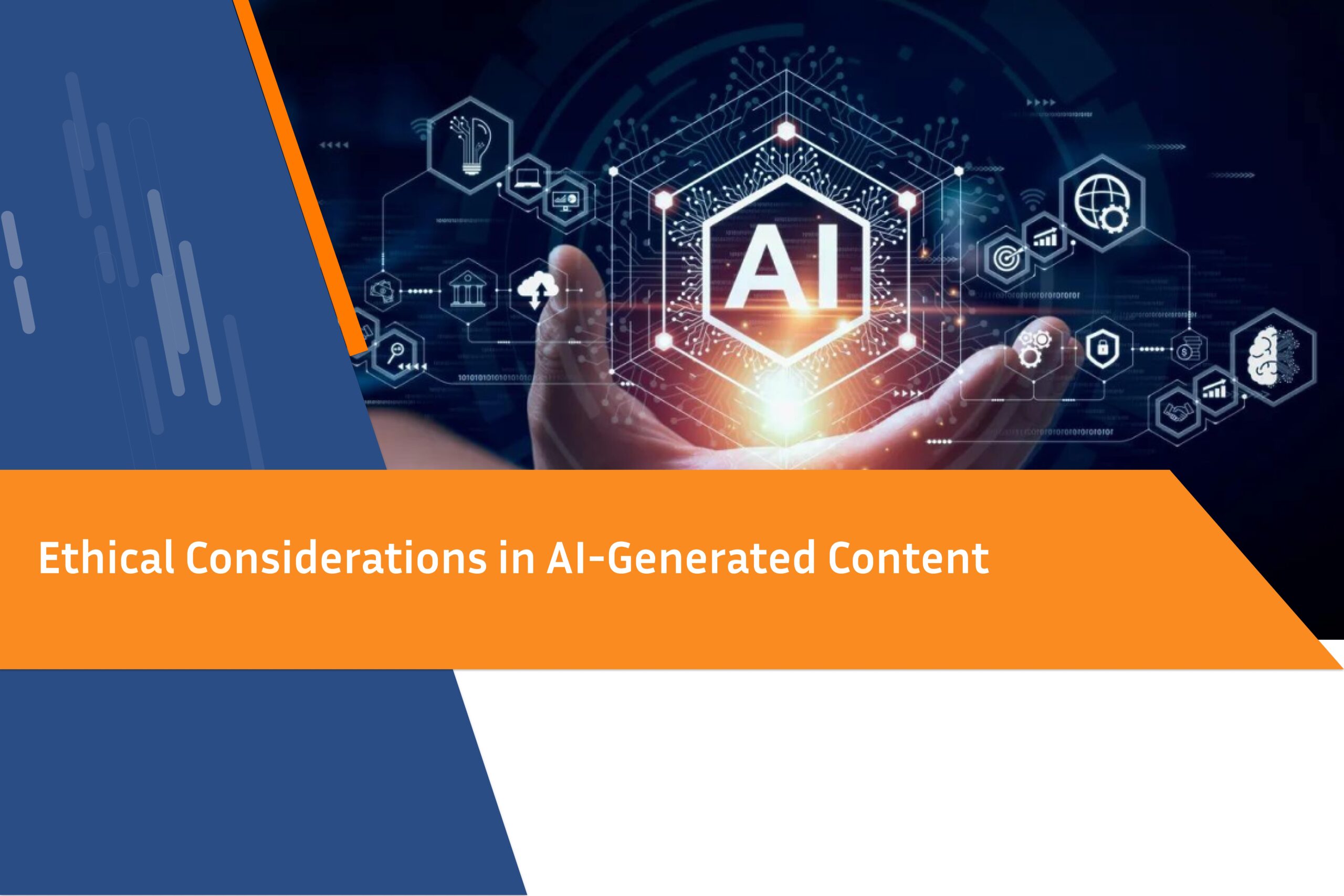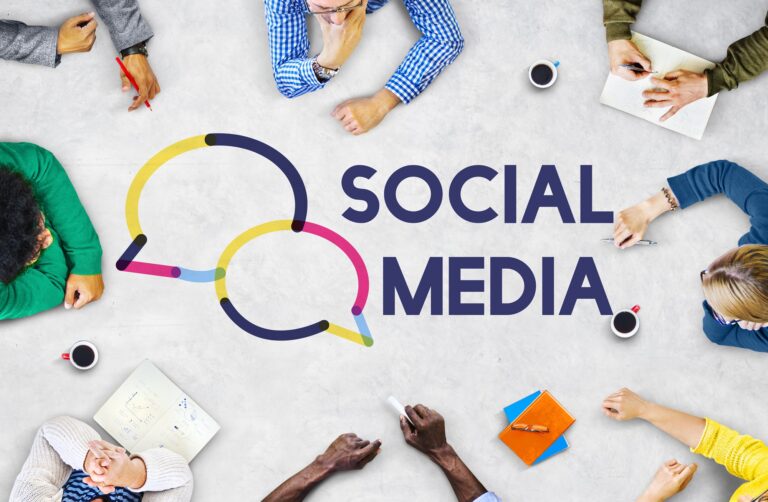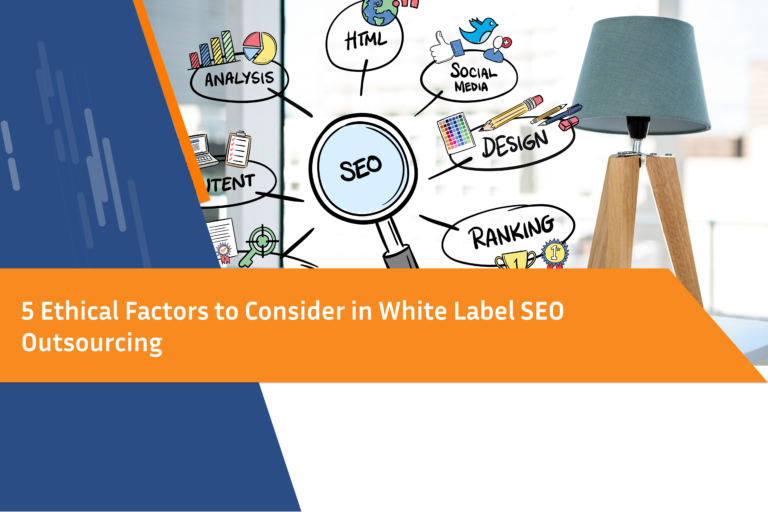Ethical Considerations in AI-Generated Content
AI technology has become the new innovation in the generation of various forms of written, documented, and audiovisual content. From creating automatic blog posts to producing AI images and videos, there are several advantages that stem from the technology including efficiency, creativity, and cost. But with these advantages stem certain ethical issues that have to be dealt with so that AI-written content can be used appropriately. In this blog, we will uncover eight of the most vital ethical issues related to AI-generated content and how a business or content writer can better address them.
Let’s Begin!
1. Transparency and Disclosure
One of the primary ethical concerns surrounding AI-generated content is transparency. Audiences have a right to know whether the content they are engaging with has been created by a machine or a human. If AI is used to generate content without proper disclosure, it can lead to a lack of trust between content creators and consumers. As AI technology becomes more sophisticated, it may be harder to distinguish AI-generated content from human-created content. This raises the question: Should AI-generated content be clearly disclosed, even if it’s indistinguishable from human writing? Ethical content creation requires transparency, and businesses must openly acknowledge when they use AI tools to generate content.
Solution: Always disclose when content is AI-generated, either in a small note or within the content itself. This can foster trust and allow consumers to make informed decisions.
2. Plagiarism and Originality
AI tools are designed to create content quickly and efficiently, but they often do so by drawing from large datasets of existing information. This raises concerns about plagiarism and the originality of AI-generated content. While AI does not intentionally steal content, it may unintentionally replicate phrases, sentences, or even entire paragraphs from existing works. This could lead to accusations of plagiarism, especially when AI-generated content is published without adequate editing or review.
Solution: Content creators must ensure that AI-generated content is thoroughly checked for originality using plagiarism detection tools. Additionally, human oversight is crucial to ensure that AI content adheres to ethical standards for originality.
3. Bias and Discrimination
AI systems are trained on large datasets, which often include biases present in the real world. If these biases are not recognized and addressed, they can be perpetuated in AI-generated content. For example, AI might unintentionally generate content that reflects racial, gender, or cultural stereotypes, leading to discrimination or harm. This is a significant ethical concern, particularly in sensitive areas such as healthcare, finance, or politics.
Solution: Developers and content creators should actively work to reduce bias in AI systems by using diverse datasets and regularly auditing AI-generated content for discriminatory language or behavior. AI models should be trained to recognize and avoid perpetuating harmful biases.
4. Accountability and Responsibility
When AI tools are used to create content, the question of accountability arises. Who is responsible if the content generated by AI is inaccurate, misleading, or harmful? Unlike human writers, AI lacks the ability to understand the context or consequences of the content it generates. As a result, it is essential for businesses to establish clear lines of responsibility for AI-generated content. Failing to do so can lead to legal, reputational, and ethical issues.
Solution: Content creators and businesses must take accountability for the content generated by AI. This includes reviewing AI-generated content before publishing, ensuring accuracy, and addressing any potential ethical concerns. Clear guidelines should be established to define human oversight in the content creation process.
5. Impact on Employment and Labor
As AI continues to take on more tasks traditionally handled by humans, there is concern about the impact on jobs in the content creation industry. Writers, editors, and designers may find themselves out of work as AI tools become more proficient in generating high-quality content. This raises ethical questions about the role of AI in the labor market and how its use could contribute to job displacement.
Solution: While AI may displace some jobs, it also creates new opportunities for individuals skilled in AI technology, content strategy, and oversight. Businesses should invest in retraining employees to work alongside AI tools, fostering collaboration between humans and machines. Ethical use of AI should aim to enhance human creativity rather than replace it.
6. Privacy and Data Security
AI tools rely on vast amounts of data to generate content, and the use of personal or sensitive data raises serious privacy concerns. If AI systems are trained on data that includes personal information, there is a risk that content generated from this data could inadvertently reveal confidential details. Additionally, AI models may be susceptible to data breaches, putting both the users and content creators at risk.
Solution: Content creators should prioritize privacy and data security by ensuring that AI tools adhere to strict data protection regulations, such as GDPR. Avoid using personal or confidential data to train AI models without explicit consent, and ensure robust cybersecurity measures are in place to protect sensitive information.
7. Ethical Content Creation and Manipulation
AI-generated content can be used to manipulate public opinion, spread misinformation, or create deep fakes. This is particularly concerning in areas such as politics, news media, and social media, where AI tools could be used to deceive or mislead audiences. The ability to generate highly convincing fake news, manipulated images, or videos poses a significant ethical challenge.
Solution: Content creators and businesses must commit to using AI for positive purposes only. Establishing ethical guidelines for AI-generated content is essential to prevent its misuse for harmful manipulation. Additionally, AI-generated content should be fact-checked, and misinformation should be promptly corrected.
8. Long-Term Impact on Creativity and Human Expression
AI-generated content can raise concerns about the future of creativity and human expression. As AI becomes better at producing content, there is a fear that it could stifle human creativity, as businesses might prioritize efficiency over originality. This could lead to a homogenization of content, where all outputs start to look or sound similar, diminishing the value of unique, human-driven creativity.
Solution: While AI can assist with repetitive tasks, it should be seen as a tool to enhance human creativity, not replace it. Content creators should continue to emphasize originality, innovation, and personal expression, using AI as a complement to their creative processes rather than a substitute.
Conclusion
In conclusion, while content writing packages powered by AI offer significant benefits in terms of efficiency and creativity, it’s crucial to approach their use with ethical considerations in mind. Ensuring accuracy, avoiding bias, and respecting intellectual property are key to maintaining trust and credibility. By using AI responsibly, businesses can harness the power of content writing packages to create valuable, high-quality content while upholding ethical standards and fostering transparency with their audiences.







